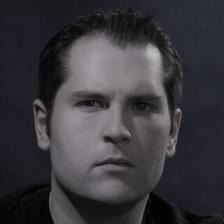When is a scare card a scare card?
A lot of times when the top card pairs--especially when it's a rag--it really isn't a scare card.Last week at Commerce I...
Posted Nov 24, 2014
Contributor

Bart Hanson
Owner and Lead Pro
Professional Cash game trainer Bart Hanson has been producing strategy content for over fifteen years. He first started on Live at the Bike! back in 2005, then moved on to host "Cash Plays" on Poker Road, then "Deuce Plays" on Deuces Cracked and then to CrushLivePoker in 2012.
In his career as a professional poker player, Bart Hanson has:
-6 WSOP Final Tables
-Over 15 years of experience at the table
-Over $1,000,000 in tournament earnings
-Multiple appearances on ESPN and Poker Night in America
-4th place finish in 2019 WSOP Monster Stack
A lot of times when the top card pairs--especially when it's a rag--it really isn't a scare card @CrushLivePoker
A lot of times when the top card pairs--especially when it's a rag--it really isn't a scare card.
Last week at Commerce I was playing the $5-10 $1500 cap game and got into an interesting multiway spot. I opened to $35 with TT from UTG +1, the cutoff called and the both the small blind and the big blind called. The flop came out 6♣ 5♦ 4♠. Even though I held an overpair this was not the best board for me as many turn cards could potentially cause me to not have the best holding. Also, if someone were to raise my bet on the flop it would be hard for me to continue as almost all two pair combinations are possible that would call a preflop raise as well as straights. Still, though, I thought a bet for value was definitely prudent and fired $100. The cutoff folded and both blinds called. The turn was the 6♥, pairing the top card. The small blind checked again and this time the big blind bet out $300. Now on the surface the 6 looks like it could be a scary card as someone may have called my continuation bet with top pair. However if we analyze the hand a little more in depth and use early street hand reading we can deduce that he does not have many sixes in his range. In fact, if the player is reasonable and not clueless, the only 6 he could have is 76 or possible 36s. It would be very difficult for him to call with a hand like A6 after the preflop raiser continuation bet into so many people and someone to his right called. Any halfway experienced player would know that top pair as a six is rarely going to be good in that spot.
Also, if this player had checked I think that a lot of people also make the mistake in checking back this board pairing card because they think it is a scare card. But in actuality, for the reasons that I just stated, it is very rare that a ragged top pair is in their range and all you are doing by not betting is giving them a free card to beat you. Because of the combination of these factors I thought it was a pretty easy turn call for me and a reevaluation on the river. After I called, the small blind folded behind me. The river brought the 9♦. This is a situation that I often call on my training site CrushLivePoker.com fifth street chicken. Calling on the turn basically announces my hand as an overpair and you get into a situation of basically daring your opponent or "playing chicken" to bet at the end because it looks so much like you are going to call. Against some players who are not capable of pulling a large bluff amount on the river or just do not have the guts, if they fire big again I very well may fold. This breaks the whole adage of calling the river when nothing changes from the turn. The fact that your opponent bet again is change enough.
In this particular situation I actually was unfamiliar with my opponent and very well may have called down because he has so few sixes in his range. However, he checked at the end after thinking about it for a long time. At this point I actually think that I made a mistake and bet $400. Even though after he checks I have the best hand probably 99 percent of the time my opponent rarely has a hand that can all a bet. If he has a bare seven he has missed and even with a hand like 75 or 88 it is very difficult for him to be good. I mean what can I possible have after cbetting the flop into three players and calling his turn bet?
But the main thing that you should take away from this article is that when the top card pairs and it is small, especially on a draw heavy board AND someone has over called they rarely will just have top pair as that holding is not strong enough for them to call the flop.